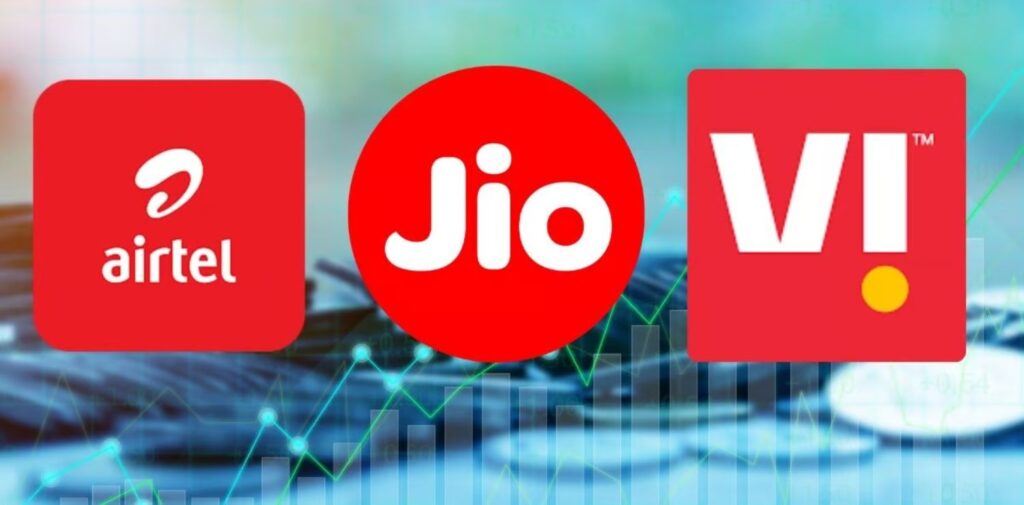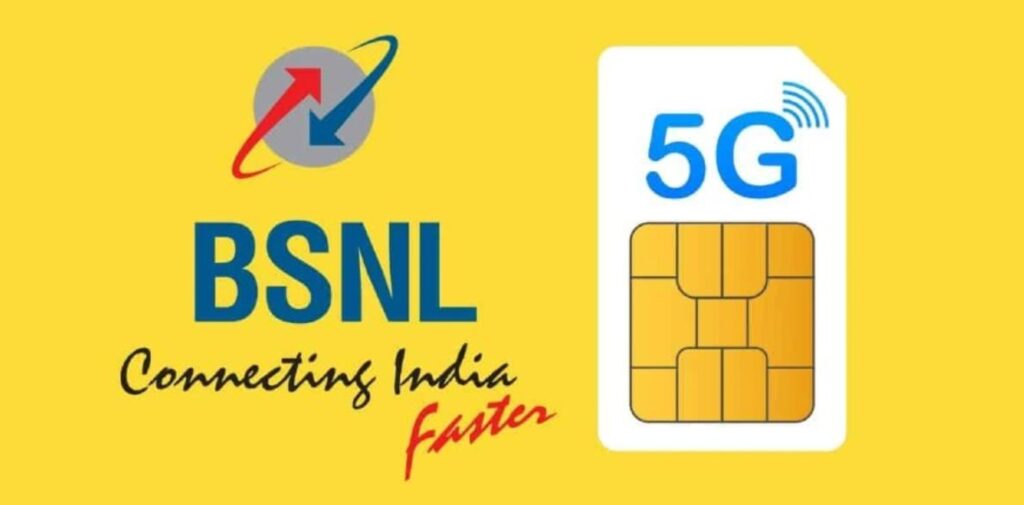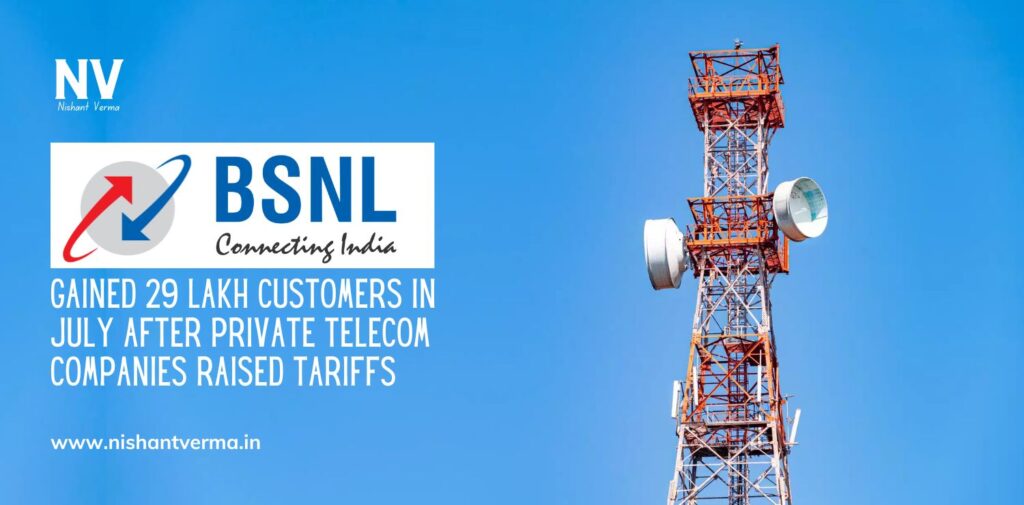The Indian telecom sector has been undergoing significant changes in recent years. With the rise of private telecom companies like Jio, Airtel, and Vodafone Idea (Vi), the landscape saw tremendous competition, low data prices, and a surge in mobile internet usage. However, with the recent hikes in tariffs by these private telecom players, state-owned Bharat Sanchar Nigam Limited (BSNL) has made a comeback, gaining 29 lakh customers in July 2024 alone.
This article will explore why customers are turning to BSNL, the impact of high charges by private telecom companies, and how BSNL’s upcoming 5G launch with lower pricing could shift the balance of power in the telecom sector.
Why Did BSNL Gain 29 Lakh Customers in July?
The telecom industry in India is known for its competitiveness. However, one of the most significant events in July 2024 was the mass shift of customers from private telecom companies to BSNL. BSNL gained 29 lakh new customers, while its private competitors—Airtel, Vi, and Jio—lost millions.
- Airtel lost 16.9 lakh users.
- Vi lost 14.1 lakh users.
- Jio lost 7.58 lakh users.
This massive customer migration can largely be attributed to one major factor: rising tariffs.
The Impact of Rising Tariffs by Private Telecom Companies
In recent years, private telecom companies have increased their tariff plans significantly. While this is often necessary for companies to maintain profitability, especially with the high costs of maintaining infrastructure and rolling out new technologies like 5G, it has made telecom services more expensive for the average user.

- Airtel’s Rising Tariffs: Airtel, one of India’s largest telecom operators, raised its prices for data and calling services, which left many of its customers frustrated. The increase, especially for lower-income users and those who rely heavily on prepaid plans, became a financial burden.
- Vodafone Idea (Vi): Vi, which has been struggling financially for some time, also raised its tariffs. Despite the price hike, Vi has lost customers due to network quality issues, coverage problems, and overall dissatisfaction.
- Jio: Jio, once known for its extremely affordable data and calling services, also raised its tariffs. While the increase was not as significant as Airtel or Vi, Jio customers still felt the pinch, especially those drawn to the company for its earlier low-cost plans.
These price hikes have made telecom services less affordable for millions of users, particularly those from rural areas, small towns, and lower-income groups. As a result, many users have turned to BSNL, which offers more competitive pricing.
BSNL’s Competitive Advantage: Affordable Tariffs
BSNL has been able to capitalize on this dissatisfaction with private telecom companies. Despite being a government-owned company, often viewed as slow to adapt to new technologies, BSNL has managed to maintain its customer base by offering lower tariffs and better value for money. This is especially important in a price-sensitive market like India, where affordability plays a crucial role in customer loyalty.
B SNL’s main selling points include:
- Lower Tariffs: BSNL’s pricing is more affordable compared to private telecom operators. Its plans are designed to cater to users who need basic calling and data services without the additional bells and whistles. This affordability has attracted users, particularly those who cannot keep up with the rising costs of private operators.
- No Hidden Costs: Many customers complain about hidden costs and additional charges from private telecom companies. BSNL’s transparency in pricing has made it a preferred choice for customers looking for straightforward, no-nonsense plans.
- Wide Coverage in Rural Areas: BSNL has an extensive network in rural and remote areas of India. Many users in these areas have switched to BSNL because of better network coverage and lower prices, particularly where private operators have limited presence or inconsistent services.
The Upcoming Launch of BSNL 5G: A Game Changer?
BSNL is also expected to launch its 5G services soon, and this could be a game-changer for the company and the telecom sector. Unlike private telecom companies, which have rolled out 5G at higher prices, BSNL is expected to offer 5G services at much lower rates. This could attract millions of users who want access to faster internet without paying exorbitant prices.

The introduction of 5G will not only improve internet speeds but also open up new opportunities for industries like healthcare, education, and agriculture in rural areas. If BSNL can deliver affordable 5G services with reliable connectivity, it could become a major player in the 5G market and challenge the dominance of private telecom companies.
How High Tariffs Affect Telecom Customers
Rising telecom tariffs have a direct impact on customers, especially in a country like India, where a significant portion of the population relies on affordable mobile services for communication, education, and entertainment. Here are some ways in which high tariffs are affecting users:
Increased Financial Burden: For many users, especially those from lower-income households, the increased cost of data and calls puts a strain on their budgets. Telecom services, once considered cheap, are now becoming a significant expense for many families.
Reduced Access to Internet Services: Higher data prices mean that some users may have to cut down on their internet usage. This can affect access to essential services like online education, telemedicine, and government schemes, particularly in rural areas.

Impact on Businesses: Small businesses that rely on affordable data and calling services to connect with customers, suppliers, and partners are also affected by rising tariffs. This could lead to increased operational costs and reduced competitiveness, especially for those operating in price-sensitive markets.
Digital Divide: As telecom services become more expensive, there is a risk of widening the digital divide in India. Users from rural areas or lower-income groups may struggle to afford high-priced services, while wealthier users in urban areas can continue to access the internet without issue.
The Need for Affordable Telecom Services
In a country like India, where access to affordable telecom services is crucial for economic development and social progress, there is a clear need for more affordable options. BSNL’s ability to offer lower tariffs and competitive services has shown that there is a demand for cheaper alternatives in the market. If private telecom companies continue to raise tariffs without addressing customer concerns, they risk losing even more users to BSNL or other potential competitors.
Will Private Telecom Companies Lower Their Prices?
The mass exodus of customers from private telecom operators in July 2024 should serve as a wake-up call for the industry. While raising tariffs may be necessary to maintain profitability, companies must find a balance between profitability and customer retention. If they continue to lose users to BSNL, they may be forced to reconsider their pricing strategies.
Moreover, with BSNL entering the 5G space, private telecom companies may face additional pressure to lower their prices to remain competitive. Customers, especially those in rural areas and smaller towns, are unlikely to pay premium prices for 5G services if BSNL offers them at lower rates.
Conclusion: BSNL’s Resurgence and the Future of Telecom in India
The Indian telecom sector is at a critical juncture. With rising tariffs pushing millions of customers away from private telecom companies, BSNL has emerged as a strong contender by offering affordable services and transparent pricing. The upcoming launch of BSNL’s 5G services could further disrupt the market, especially if the company maintains its focus on affordability.
For private telecom companies like Airtel, Vi, and Jio, the loss of millions of customers in July 2024 should prompt a reassessment of their pricing strategies. In a price-sensitive market like India, affordable telecom services are crucial for maintaining customer loyalty and staying competitive.
As the telecom industry continues to evolve, one thing is clear: customers are looking for value, and companies that can deliver reliable services at affordable prices will come out on top. BSNL’s resurgence is a testament to the importance of keeping prices in check, especially in a market where affordability is key.




